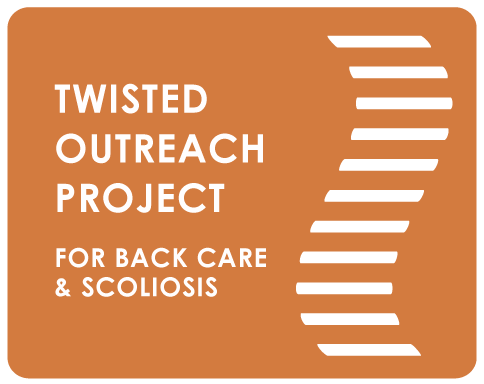Supportive Care
Throughout the world, there are many alternative therapies known to support healing. Whether physical, emotional or spiritual, these healing modalities are often rooted in ancient wisdom that promotes the well-being of both the body and the soul. These practices are especially beneficial to people with scoliosis for post-surgery recovery and support as well as for long-term back care and maintenance.
A wide range of therapies are available. These are often used in combination with medical treatments but can sometimes provide sufficient treatment on their own when the scoliosis is less severe. A well-rounded back care regime usually comprises a variety of therapeutic and body work approaches that aim to strengthen the body, improve posture, release tension and alleviate pain, as well as improve mobility and flexibility of the spine.
WHAT YOU NEED TO KNOW
Supportive therapies are not necessarily ALTERNATIVE therapies.
While supportive treatments can sometimes eliminate the need for medical intervention, this is not always the case, particularly if the scoliosis is severe or progressing rapidly.
You have time to explore your options.
The decision to undergo surgery is often presented as urgent, but even in severe cases of scoliosis, you can afford to take a few months to study and explore some supportive therapies before making a decision.
There is no one-size-fits-all treatment.
As every individual’s curve is different, so too will be the back care regime. Your individual practice must be tailored to your specific needs. It can take some time to explore the options and find the right fit for you.
Not all supportive therapies are backed by the mainstream medical establishment.
Many alternative healing modalities are based on ancient practices and referred to as “alternative medicine” or “pseudoscience.” This does not mean these are ineffective, only that there has not been enough scientific evidence or study to make conclusive determinations.
The placebo effect is powerful.
The mind and the body are intricately connected, and healing often relies as much on our state of mind as on our state of body. This is where many alternative therapies do their work by bringing greater relaxation and mindfulness. What one person finds relaxing another may not, so if an alternative therapy isn’t medically “proven” but offers you relief and comfort, try not to dismiss it out of hand.
Focus on the treatments and movement practices that you enjoy.
Back care is a lifelong process. So the bottom line is, if you don’t really like doing a particular method, you certainly won’t have the incentive to do it for the rest of your life! Approach new treatments with an open mind, and keep going until you find the practices that are right for you.
There are many different Types of Supportive Care.

